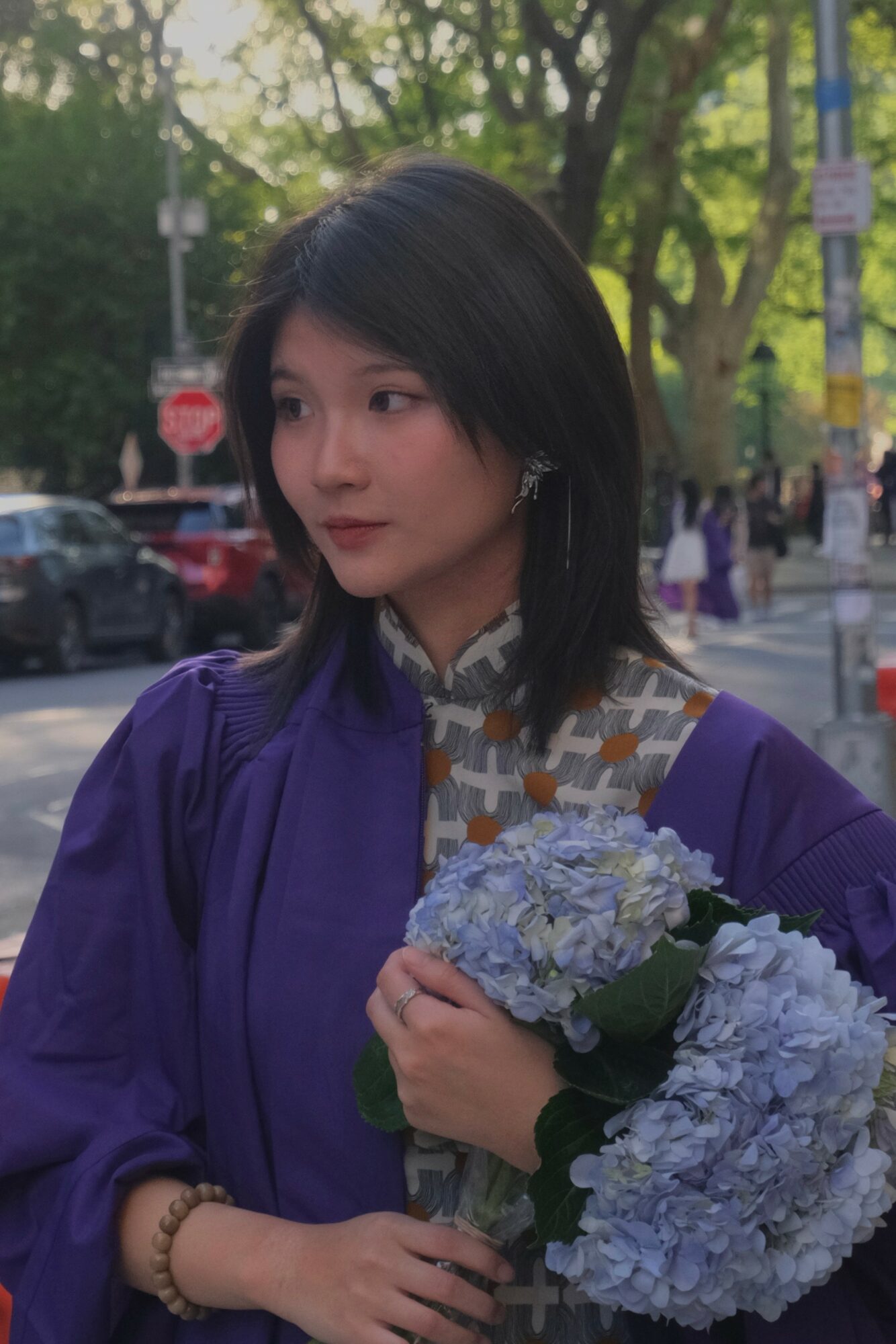

Today we’d like to introduce you to Olivia Huilin Gao
Hi Olivia Huilin, please kick things off for us with an introduction to yourself and your story.
My journey with film started in middle school, back when I was still with my first love. He introduced me to cinema, and together, we nearly finished IMDb’s Top 250 list. Even after we broke up, film remained a constant in my life.
I made my first film in high school, in a small town in Yunnan, China. Surrounded by endless cornfields, I built a scarecrow—my first time fabricating a prop, using my own shirt. That moment sparked something in me. It led me to NYU Tisch School of the Arts, where I explored different roles in filmmaking.
Production design became my focus after working on Nocturne. It was the first time I wasn’t just executing a director’s vision and follow the script strictly but to create a visual style based on my interpretation of the story. It reminded me of how, as a child, decorating my bedroom was a reflection of my personality. In the same way, a character’s environment speaks volumes about who they are. More than anything, Nocturne made me realize that production design externalizes my sense of aesthetics, and that gave me an immense sense of fulfillment. From that point on, I knew this was what I wanted to pursue.
Can you talk to us a bit about the challenges and lessons you’ve learned along the way. Looking back would you say it’s been easy or smooth in retrospect?
Definitely not. I’ve faced challenges in three major areas:
Balancing creativity and practicality – Early on, I often had ambitious ideas that were exciting in theory but difficult to execute. For Nocturne, I pitched several visually striking concepts, but once we got to production, I realized some of them were too risky to pull off effectively on camera. I love pushing creative boundaries, but filmmaking is a collaborative process, and I’ve had to learn when to adapt, compromise, and find alternative solutions without losing the essence of my vision.
Working with low budgets – Indie films often come with tight financial constraints, which force me to think outside the box. I’ve had to develop hands-on skills to bring ideas to life within these limitations. For example, we once needed a human-sized tree trunk that would eventually be burned, but due to budget and safety concerns, I had to design and build it myself in just a week. It turned out to be both realistic and effective. These challenges have made me more resourceful and versatile as a production designer.
Collaboration and communication – Finding the right teammates is always a stroke of luck, but sometimes you work with people who have vastly different styles. This is especially common with first-time directors who come from acting or other backgrounds and assume production designers can magically produce anything overnight. Managing expectations and fostering clear communication have been crucial skills I’ve developed along the way.
Thanks for sharing that. So, maybe next you can tell us a bit more about your work?
I primarily work as a production designer for indie films and vertical short drama series. However, my work extends far beyond that title—I take on responsibilities that span across art direction, prop making, graphic design, set dressing, and more. I’m deeply involved in every stage of production, ensuring that creative concepts translate effectively into reality. I enjoy being hands-on, overseeing production on-set, even on larger productions. This approach has sharpened my ability to balance creativity with practicality and strengthened my execution skills.
At the same time, I never stop pushing my creative boundaries. What sets me apart is my interdisciplinary and adaptive mindset. I am a firm believer in lifelong learning and have an insatiable curiosity across various fields—architecture, sociology, anthropology, history, interior design, philosophy, and more. I refuse to confine myself to a single perspective, allowing my explorations to fuel my creativity and enrich my work.
In short, I see far, but I also keep my feet firmly on the ground.
What does success mean to you?
Success isn’t a singular destination; it’s a series of milestones. If you see it as one ultimate goal, you’ll never reach it because there will always be more to chase. But if you treat it as an ongoing journey of growth, you’ll always be successful—just on different levels.
For me, success means being a better version of myself today than I was yesterday.
Contact Info:
- Website: https://www.olivia-huilin-gao.com/
- Instagram: https://www.instagram.com/malamuchachal/






Image Credits
– Ryan Wenrui Zhao
– Yiwen Qian
– Freya Sun
– Olivia Huilin Gao
– Stills from Nocturne














